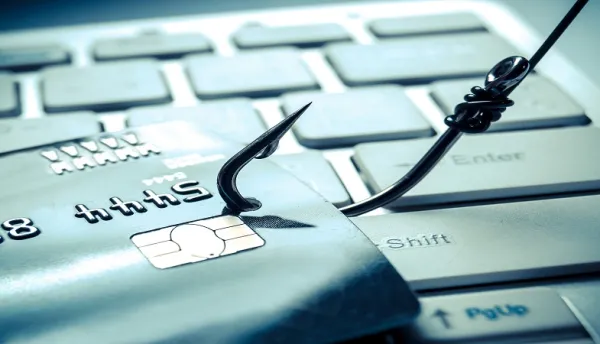- Africa’s new dawn: the rising role of digital and AI in agriculture
- Can Dangote Refinery Transform Africa Energy Ambition
- Gallup Survey: 80 per cent of Kenyan Workers Are Disengaged and Seek New Opportunities
- Madagascar Man Freed from 5KG Tumor After 15-Year Struggle
- How women in Africa are perceived and treated
- Sugar consumption in Kenya to Increase to 1.23 Million Tonnes
- Can Somalia and Turkey Oil deal Bring Change in Somaliland
- Remittances to Kenya dropped to $371.6 million in June, marking a six month low
Browsing: Cyber Security
- Cyber recovery costs have over the past one year increased to $2.73 million.
- The survey included responses from 5,000 IT and cybersecurity leaders in 14 countries, covering organisations with 100 to 5,000 employees
- Only 1 per cent of claimants said their insurance covered all costs
According to a new report by online security solutions provider Sophos, the recovery costs from cyber-attacks have outpaced insurance coverage.
The survey titled “Cyber Insurance and Cyber Defenses 2024: Lessons from IT and Cybersecurity Leaders,” shows that recovery costs from cyber-attacks are outpacing insurance coverage with only one percent of those that made a claim saying that their carrier funded 100 percent of the costs incurred.
The most common reason for the policy not paying for the costs in full was because the total bill exceeded the policy limit.
According to The State of Ransomware 2024 survey, recovery costs following a ransomware incident increased by …
- Cybersecurity, corruption, and policy shifts have been cited among the top issues that Kenyan businesses will have to confront in 2024.
- In 2022, Kenya suffered a loss of at least $153 million to cybercrime, which is projected to rise by 14 per cent annually.
- A new report ranks Kenya as the second most difficult country for businesses in EAC after South Sudan.
Cybersecurity, corruption, and policy shifts have been cited among the top issues Kenyan businesses will have to confront in 2024.
The latest Risk Barometer by underwriting giant Allianz, reveals that in Kenya’s complex and dynamic business environment, several challenges loom, casting shadows on the entrepreneurial spirit that drives the economy.
The high cost of living directly impacts consumer spending, affecting businesses across sectors. A weakening currency coupled with inflation also threatens businesses and the economy.
According to Allianz Commercial CEO Petros Papanikolaou, the key challenges for companies …
- Three Kenyan startups have been selected for an incubation programme after winning the Cyber Security Hackathon at the just concluded Blue Economy Innovation and Investment Summit.
- The three startups, which are based in Mombasa include Bio Secure, Tide Safetynet and Seatrust Navigator.
- Sote Hub Founder David Ogiga says the three startups will receive six months technical and financial support to bring their ideas to life.
Three Kenyan startups have been selected for an incubation program after winning the Cyber Security Hackathon at the recently concluded Blue Economy Innovation and Investment Summit. The startups, based in Mombasa, include Bio Secure, Tide Safetynet, and Seatrust Navigator. Sote Hub Founder David Ogiga stated that these three startups would receive six months of technical and financial support to bring their ideas to life.
“Our focus for this year’s hackathon at the conference was circular economy, cyber security, blue economy, climate change, and the digital …
Today, being an online trader or digital shopper only requires one to have a smartphone, internet connection, a convenient social media platform and some products to sell or to buy.
One of the major hindrances to e-commerce across the world is inadequate online payment systems. In Kenya, however, mobile payment platforms have placed the East African nation at the top of other global economies. For this and many other reasons, Kenya is ranked third in Africa after Nigeria and South Africa, in terms of online shopping volumes, according to an article published in the Daily Nation last year.
All said and done, while you enjoy the convenience of online shopping, doing so comes with risks that can frustrate the modern way of shopping, leaving consumers and dealers vulnerable to the antics of online criminals.…
ZICTA has since reiterated that the members of the public should at all costs desist from buying already registered SIM cards as such is against the law and anyone found wanting risks being prosecuted.
Chaaba revealed that so far, ZICTA has encountered situations where innocent people have been implicated in investigations due to owning SIM cards that were once used by criminals.
ZICTA confirmed with Zambian Business Times that the SIM cards that will not be claimed within 90 days after deactivation will be allocated to other new users. The Authority has since appealed to members of the public to take time to regularise their SIM card registration to avoid losing their contact numbers and for the country to have a clean database.…
The rise of digital technology presents a myriad of new inventions and conveniences and changes how people interact, communicate, and do business.
The immense benefits of technology carry with them cybersecurity risks. Given the complex and sometimes obscure nature of cyber threats, they are usually difficult to comprehend, identify and control.
Issues of outright theft, hacking, piracy, identity theft, and information misappropriation, among other cyber-related activities, come to the fore when it comes to cyber risks. In addition, national security risks exist in the digital space that poses a significant threat.
According to consulting firm Ovumone, it is estimated that the end of 2022 will see over a billion people having access to the internet. The rising internet access and improved digital usage open up the continent to increased online criminal activity.
…“Cybercrime is shifting towards emerging economies. This is where the cybercriminals believe the low-hanging fruit
In this column called “The Indicator,” we will be taking an economic or financial statistic from East Africa and breaking it down into bite-sized nuggets of knowledge for investors.
This month’s indicator figure is 597,028,294
597,028,294 what?
597,028,294 US dollars is the projected cumulative annual cost of cyber security attacks across East African Community (EAC) countries for 2020 as extrapolated from a 2017 study “Demystifying Africa’s Cyber Security Line”.
What is a cyber security attack?
A cyber security attack often called a “hack” is when a nefarious individual or group uses a computer to invade the computer or the computing network of a person or company.
Cyber attacks can come from external attackers such as cybercriminals seeking to steal money, damage the reputation, or block access to computing resources in order to extort ransom money from a company. Cyber attacks can also come from “insiders” — frustrated current or former …
Kaspersky Lab has announced plans to open a new office in Kigali, Rwanda, to support the rapid growth of its business in East Africa. This strategic move will provide more room for development as well as closer proximity to new partners in the region, allowing Kaspersky Lab to continue its expansion into the promising African market.
The decision to open a new office was made during Eugene Kaspersky’s visit to Rwanda where he met with Rwanda President Paul Kagame, at the Transform Africa Summit. During the visit, they discussed how Kaspersky Lab could collaborate with the Rwandan government and ways to better protect the country from cyberthreats.
“Governments and enterprises across Africa need an integrated approach to complex threat detection and response as they fight cybercriminals who have significant financial resources and are constantly looking to exploit any vulnerability,” said Eugene Kaspersky, CEO of Kaspersky Lab.
The Kigali office will …











